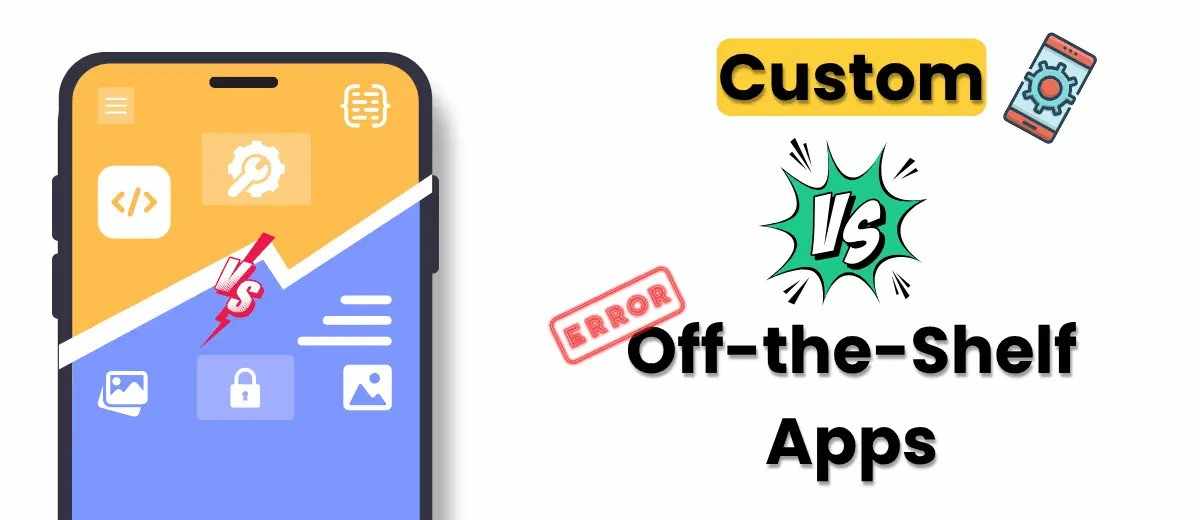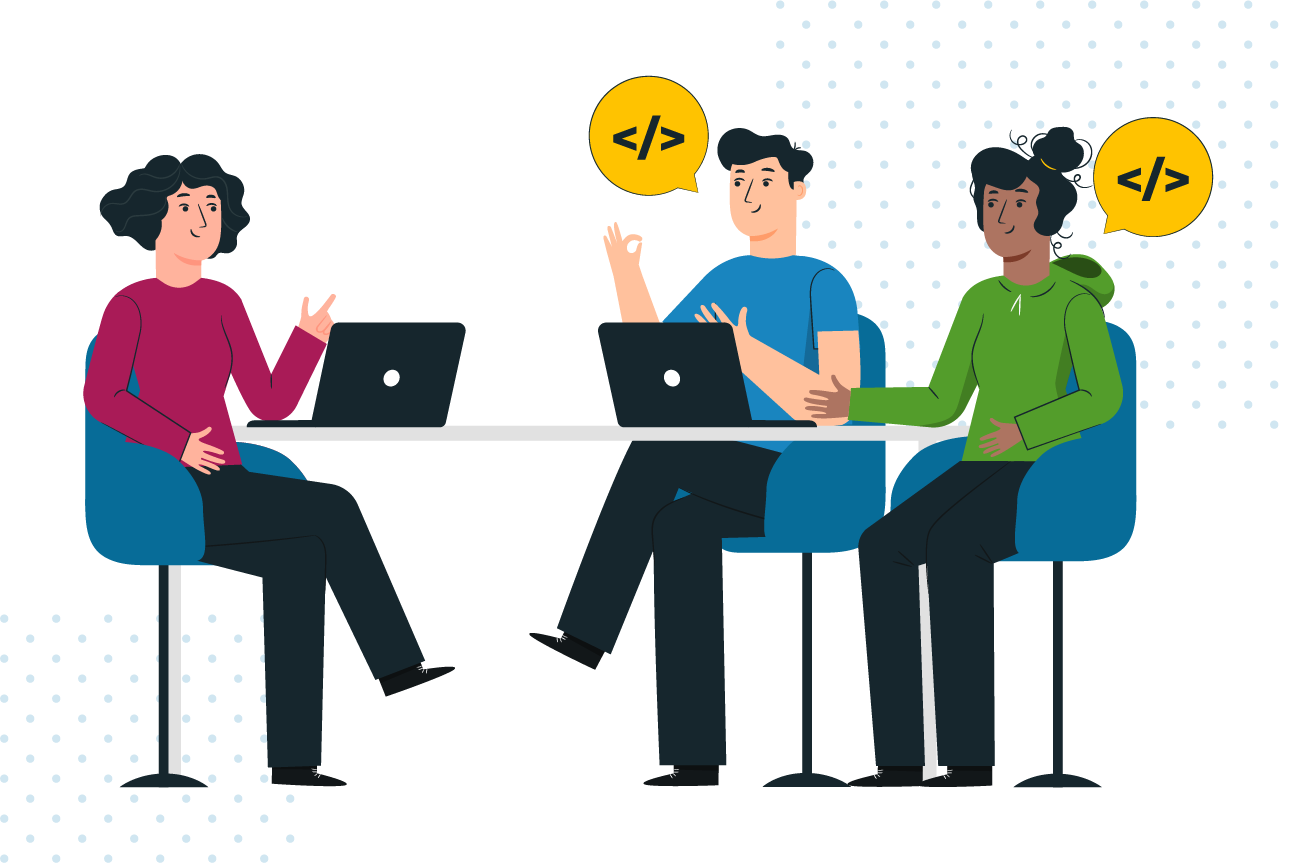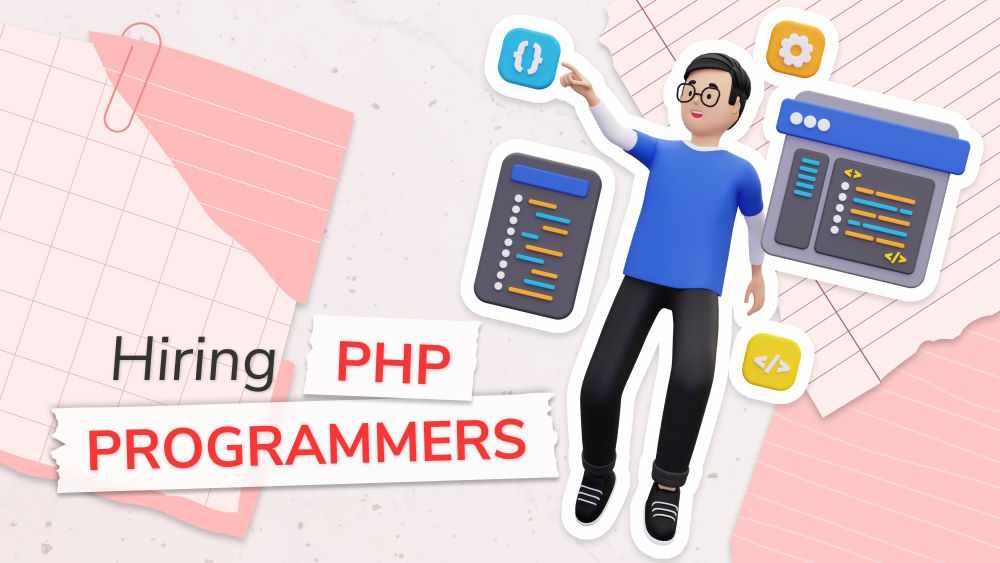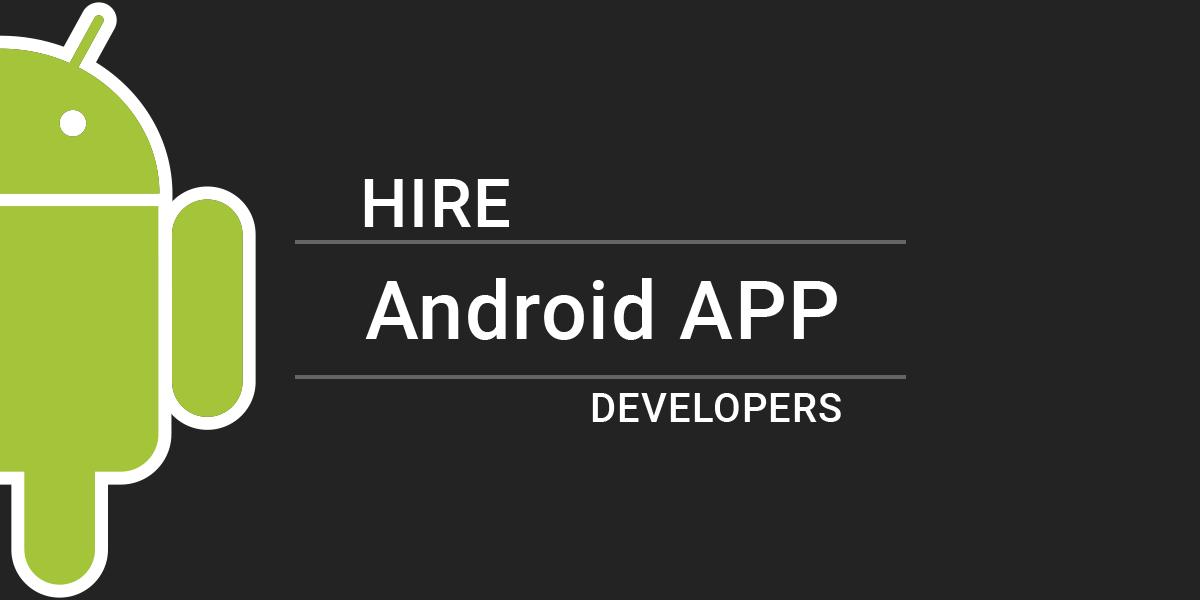
In the present digital-first economy, mobile applications are not an option for businesses in the United States, but a necessity. Startups and established businesses depend on mobile applications to connect with customers, simplify the process, and discover new sources of revenue. Nevertheless, at some point in the planning phase, there always comes a critical point of decision-making, whether it is to develop a tailor-made app or instead adopt an off-the-shelf solution.
Each method has its advantages and disadvantages, and a decision to prefer one or the other will depend mainly on your business objectives, budget, and business development strategies. This blog will demystify the differences, discuss the cost implications, and assist you in deciding what suits the USA businesses.
What Are Custom Mobile Apps?
A custom mobile application is developed based on your business needs. All features, designs, and functions are designed to match your vision and goals. This will create distinctiveness, mass scale, and brand presence.
As an example, an eCommerce company might desire a mobile application that combines personalized suggestions, advanced analytics, and personal payment gateways. These are characteristics that are seldom encountered in generic or off-the-shelf products.
Key benefits of custom apps include:
Custom user experience that reflects your brand.
Scalability to meet the needs of your business.
Smart connectivity to existing systems and software.
Extra security facilities tailored to your data.
If you are planning long-term growth, working with the best mobile app development company in USA allows you to build solutions that keep pace with changing market demands.
What Are Off-the-Shelf Mobile Apps?
Off-the-shelf applications are ready-to-use applications made to serve many people. They are easy to use, affordable, and are also tailored to suit many businesses across industries. Examples might be popular point-of-sale apps, project management solutions, or ordinary booking solutions.
Although these solutions are fast to implement, they are not flexible. Most of the time, businesses must fit the app to their workflow as opposed to vice versa.
Advantages of off-the-shelf apps include:
Swift deployment without development timeframes.
Reduced initial expenses over off-the-shelf..
Time-tested reliability and wide use.
However, these apps may come with unnecessary features, limited customization, and recurring licensing fees, which can impact long-term ROI.
Comparing Custom and Off-the-Shelf Apps for USA Businesses
We can consider the comparisons between the two alternatives in terms of the most critical aspects to the business in the United States. In the following table, the comparison of the custom vs off-the-shelf mobile apps can be appropriately understood.
Factor
Custom Mobile Apps (USA Businesses)
Off-the-Shelf Mobile Apps (USA Businesses)
Cost
More initial investment; no license renewal payments; ownership is long-term
Lower start-up fee, subscription fees, and add-ons.
Time to Market
Designing, development, and pre-launch testing are more time-consuming.
Deployment now; it can be deployed in days or weeks.
Scalability
Scalable and can be easily changed to new services and expansions.
Poor scalability can necessitate tradeoffs or necessitate a switch to an entirely different platform.
Security
Industry-specific compliance and advanced encryption options.
Standardized protocols are not always sufficient for sensitive industries.
User Experience
Personalized design reflecting brand identity; customer-focused journeys.
Generic features designed for broad use; less alignment with customer needs.
1. Cost Considerations
In-house developed mobile applications will require a bigger initial outlay, but lower long-term costs through avoiding licensing and unneeded upgrades. OTS apps have a lower price at the outset but run up expenses via subscriptions, add-ons, and integrations. The mobile application development cost in USA falls between 30,000 and 300,000.
2. Time to Market
Custom apps are also slower to design, develop, and test, which could delay business launches that want to enter quickly. Ready-made software can be implemented within days or weeks, and is thus attractive to short-term emergencies, at the cost of long-term originality and flexibility.
3. Scalability and Flexibility
Use custom apps, which can change as your business grows, and it is easy to add features as your company grows across states. Off-the-shelf applications, on the other hand, limit scalability and compromise, and are prone to being replaced in due course. This is an advantage to USA businesses that want to grow, so they hire mobile application developers in USA that offer long-term flexibility and solutions that are future resilient.
4. Security
Industry-specific security controls, such as HIPAA compliance or advanced encryption to secure the finance, are available as custom apps that provide greater protection of data. Ready-made applications are based on standard protocols and do not necessarily suit the specialized requirements. Many organizations rely on the best mobile app development company in USA.
5. User Experience
The custom mobile applications are designed with a focus on a target audience, providing them with custom experiences that represent the brand identity and lead to loyalty. Off-the-shelf apps provide canned functionality, which is usually out of balance with the customer's expectations. In the retail and travel industries, personalized experience plays a significant role in increasing engagement, satisfaction, and total revenue.
The Cost Factor for USA Businesses
Budget is a central part of decision-making. Mobile application development cost in USA will differ significantly depending on the complexity, features, and experience of the developers. Custom apps require more upfront investment, and off-the-shelf apps can be tempting on the surface but have a lot of hidden costs.
App Type / Model
Mobile Application Development Cost in USA
Description
Simple Custom App
$30,000 – $60,000
Includes basic features with minimal integrations.
Medium-Complexity App
$70,000 – $150,000
Covers third-party integrations and moderate custom functionality.
Complex Custom App
$200,000+
Advanced features such as AI, blockchain, real-time analytics, and large-scale usage.
Off-the-Shelf Solutions
A few hundred dollars per month in subscriptions
Affordable initially, but hidden costs add up with extra features, integrations, and premium support.
Conclusion
There is no one answer when it comes to deciding what type of mobile apps to install, custom or off-the-shelf. Off-the-shelf solutions are fast to deploy and less expensive to set up, and are suitable when the requirements of the business are relatively simple (such as a startup).
Nonetheless, bespoke applications offer more scalability, better security, and a customized user experience, which is essential in case a company wants to succeed in the competitive US market over time.
In the end, it is a matter of your objectives, finances, and ambitions. When the goal is to minimize risks, scale up smoothly, and establish a good customer base, a good choice would be to hire the best mobile app development company in USA.
Hire mobile application developers in USA who are experts at creating customized mobile applications. One such development agency is Octal IT Solution, who have an expert team of developers who are efficient in various trending technologies. The appropriate app can be the most critical business resource of the digital era, whether you are just beginning or you are thinking of going big.














Write a comment ...